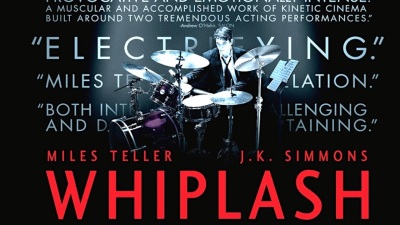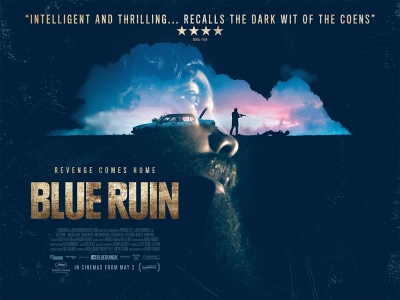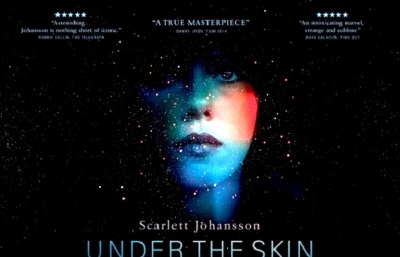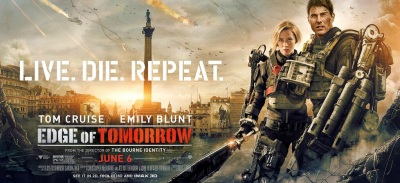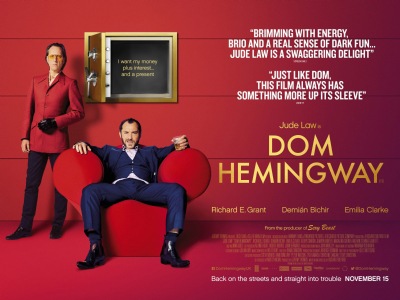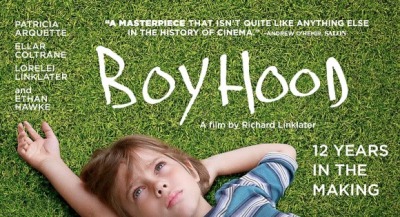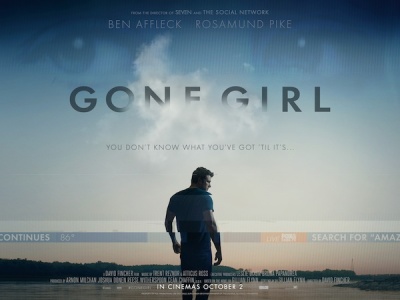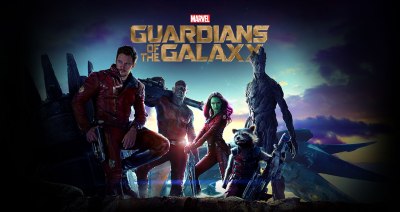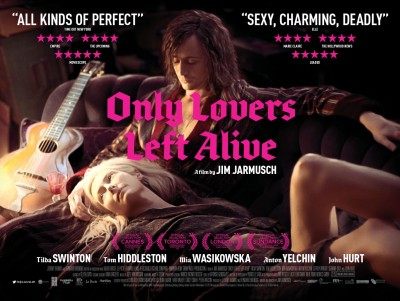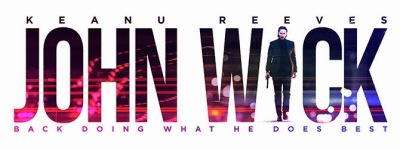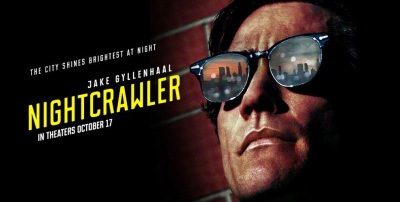This is my third year running, but you wouldn’t know it because the blog in which I wrote the previous entries is down. I’ll try restoring those at some point. Until then, take my word for it that this follows a similar format: I hate “best of” lists, so these are just the movies I personally loved, for various reasons, the most last year. They are also not in any particular order because the only thing I dislike more than most “best of” lists is being forced to rank them.
Without further ado, let’s go against what I just said and start with what is truly my favorite movie of the year:
This blew me away. From the opening scene to the final cut to black, no other movie since GRAVITY has had me so riveted. In fact, as soon as the final, destined-to-be iconic scene ended, I shot up out of my seat and exclaimed “Holy SHIT!” with a huge grin on my face. When’s the last time you’ve done that?
The plot of WHIPLASH is simple: a talented drummer at a top music conservatory endures the torturous teaching methods of the top instructor in order to achieve greatness. But what you’re there to see is a tour-de-force performance by both JK Simmons (who should win the Best Supporting Actor Oscar in a landslide) and Miles Teller – whose ability to play the drums convincingly is an underrated reason why this movie works as well as it does. So often it’s painfully obvious that the actor isn’t even holding the instrument properly despite their character supposedly being a virtuoso. Or the camera lingers on the actor’s face and then obviously cuts to a stand-in performer doing the actual playing. Not so with Teller — and it makes all the difference. Writer/director Damien Chazelle displays masterful talent in his feature-film debut. I never imagined I would ever be that stressed out watching someone play the drums. I hope for amazing things from him in the future, but at the same time, if this is is peak, it’d still be a worthwhile career.
It’s been a while since I’ve seen this one now, but if you’re looking for a sparse yet tense indie thriller, BLUE RUIN is fantastic. Macon Blair gives a captivating performance as a broken man who, years after his parents’ murder, is given an opportunity to exact his revenge. As you can imagine with these sorts of yarns, it doesn’t go quite as planned.
What I find interesting is how both BLUE RUIN and WHIPLASH elicit similar levels of narrative suspense, creating sequences where you find your entire body tense and rigid in anticipation on small budgets, without big name actors (unless you count Devin “Buzz McAllister” Ratray, who is fantastic in BLUE RUIN, actually), and with stakes that are enormous for the characters involved but not remotely “the world is going to end” in scope. Give me movies like this any day, which then should be no surprise that several of the movies on this list fit that description.
This is a truly haunting cinematic experience with the most disturbingly gorgeous imagery captured on film this year. Writer/director Jonathan Glazer stripped down Michel Faber’s eponymous novel into a bare examination on what makes us human, by following the creepy actions of Scarlett Johansson’s female alien as she hunts men in the Scottish hillsides. This is heady sci-fi that’s more interested in emotions and existential ideas than specifics on the alien’s biology, technology, or native world. And like the best in sci-fi, UNDER THE SKIN uses this conceit as a way to explore ourselves, specifically how we dehumanize each other for our own personal needs and how our perspective on this can all change, viscerally, once someone does that same thing to us.
Much was written about Johansson’s full-frontal nudity, but unlike other films where she would be relegated to being merely the focus of the film’s male gaze, she’s not depicted in such a gratuitous way here. It’s necessary for her character and the story. Balancing it out — which is virtually unheard of in mainstream cinema — she’s outnumbered by the number of males shown in similar bare fashion. (Granted, this isn’t exactly a true Hollywood picture, but it does feature a true Hollywood star and got plenty of buzz despite not being a traditional Hollywood movie.) Not unlike how the main character stalks her prey, UNDER THE SKIN will follow you long after you’ve stopped watching.
Damn, this was a good time at the movies. I saw it again over the holidays with family and thoroughly enjoyed it on a second go-round. It’s smart, it has a strong female lead, it has Tom Cruise being every bit the movie star he’s had a tougher time being since the whole Oprah couch fiasco — but most importantly, it’s just plain fun and satisfying.
To sum it up, it’s GROUNDHOG DAY meets INDEPENDENCE DAY: we follow Cruise’s cowardly PR officer as he’s thrown into a futuristic D-Day that he ends up reliving over and over until he can find a way to beat the alien foe that has taken over the world. It may seem silly, but there’s almost a sports-movie feel to this as you root for Cruise’s character to learn how to fight in an ALIENS-inspired mech suit, complete with a laugh-out-loud-and-cheer montage scene. It won’t win any major awards – nor was it even nominated – and it didn’t light up the box office either (which is a shame), but when you’re in the mood for some good old fashioned escapism and have a blast at the movies, EDGE OF TOMORROW is what you hope to see.
I’m surprised, too, that this made my list. No one is talking about DOM HEMINGWAY this awards season, but after watching it at home on Redbox while sick one day months ago, I haven’t been able to shake it from my memory. Jude Law plays an absolutely crass human being, a safecracker who we meet as he’s getting out of prison having served 12 years because he didn’t rat out his criminal employer — a man who he feels owes him for his time segregated from society. (Can you blame him?) As you can imagine, they don’t necessarily see quite eye to eye on this and, well, I won’t say anything more.
Hilarious in a holy-shit-he-actually-said-that kind of way, there’s also genuine tension as well as a bit of heart to it as we get to know Dom, who is endearing in a way that you could only handle by seeing him on a screen, never in real life. It culminates in something that the rest of these movies on this list also possess: a memorable final scene. (Nothing can top WHIPLASH in that category, but I’m notorious for not remembering how movies end, either because I relate more to the characters’ journeys than destinations or many films just don’t offer finales worth remembering; I’m not quite sure. So that makes these films all the more impressive, in my mind, that I remember their endings.) It was a crowded field for Best Actor this year, but, for my money, I think Law deserved this nomination far more than Cumberbatch (more on that later).
This movie had all the makings of a gimmicky, over-praised pretentious mess: a meta-narrative with Michael Keaton playing an aging actor who once played a superhero (get it?); the whole movie being shot in seemingly one continuous take (take that Orson Welles); extremely dour filmmaker Alejandro G. Inarritu tackling comedy for the first time (if you don’t count BABEL, heyo!); all set in one main location: a Broadway stage (time to take ourselves realllly seriously).
Somehow, it works.
Granted, I’m a giant fan of Michael Keaton (who isn’t?) and will watch just about anything he’s in (except the new ROBOCOP, which I had to turn off because even he couldn’t elevate that to the level of being watchable). But it wasn’t just Keaton’s incredible performance. It was Edward Norton brilliantly playing the version of himself that everyone already believe he is: a talented actor who is a total prick and impossible to work with. It was Emma Stone and Naomi Watts stealing scenes left and right. And it was the magical realism and overt commentary on fame and filmmaking that oftentimes, in other movies, tend to pull me out of the cinematic experience, but instead, here, felt all part of the whole. If it wins Best Picture, you’ll hear no complaints from me.
What an achievement. You’ve already heard all about how writer/director Richard Linklater shot this in two-week bursts annually over the course of 12 years, giving it a wholly original feel in a non-documentary film. It’s not flashy. It’s not melodramatic. If you keep waiting for that big, tumultuous event, you’ll be disappointed. Instead we get the simple yet engrossing treat of watching all these actors age in real time along with the characters their portray, an average family of four navigating the life of divorce, re-marriage, and adolescence.
Ethan Hawke is his usual steady self, but Patricia Arquette steals the show with her fully realized and human portrayal of a (more often than not) single mom trying to do her best to raise her two kids. Would love to see her win Best Supporting Actress. I must admit that I find myself thinking about this movie the least of all on my list. And while I don’t like recommending a movie based on pure novelty, BOYHOOD elicits more than enough genuine emotion to elevate it beyond a mere gimmick.
The plot lends itself to being another forgettable Hollywood drama-thiller: a man’s wife goes missing and he’s the number one suspect even though he didn’t do it – probably. If this had been 1995, it would’ve likely been turned into a grimy Joe Eszterhas spectacle. Thankfully times have changed somewhat since then since Gillian Flynn wrote the script herself, based on her own novel.
Still, some saw the film as being misogynistic. Others quite the opposite. Many somewhere in the middle, including myself. A movie can propose misogynistic ideas without actually endorsing them, even if the main character is guilty of those ideas. The reality is that the onus isn’t on the filmmakers to spell it out and tell us exactly how we’re supposed to feel; that’s up to us. And director David Fincher masterfully rides the line between pulpy entertainment and controversial commentary on the roles men and women play in relationships to make our job as the audience that much tougher – but also that much more satisfying. There’s much in GONE GIRL to discuss and dissect, and that’s why it’s one of my favorites of the year. That and Rosamund Pike’s performance. Damn.
As I look at my list, I realize that this was the year of the fun movie. What makes it so is that the filmmakers didn’t sacrifice quality for the fun; in fact, the quality is inherent to what makes them so enjoyable. If I’ve learned anything this year, it’s that big dumb action movies needn’t be dumb any more. Not when this crazy movie — based on a comic book that was obscure even for comic book fans, starring the goofy guy from Parks and Rec, Colombiana, a wise-cracking raccoon, and a sentient tree who can basically only say his own name — ends up being the second-highest grossing film of the year, beating out the latest installments of TRANSFORMERS, CAPTAIN AMERICA, X-MEN, SPIDERMAN, and THE HOBBIT. (Not to give too much credit to box office as a signifier of quality, but it’s still worth noting.)
This is a rare case of something truly great also capturing a zeitgeist amongst the general population. It harkens back to the heydays of when Indiana Jones and Han Solo first graced the silver screen. Depending on my mood on any given day, this could surpass WHIPLASH at the top of my list. Baby Groot forever.
The world didn’t need another vampire movie. But then Jim Jarmusch came around with this and proved everyone wrong. Perfectly cast, Tilda Swinton and Tom Hiddleston play immortal vampires and in true Jarmusch fashion, don’t get up to all that much. Yet it’s all so mesmerizing and entertaining, employing some of the best camerawork of Jarmusch’s long career. Of course, it didn’t hurt that it was shot and set mainly in Detroit and has Hiddleston portraying a depressed musician who prefers to steal blood from the local hospital rather than killing anyone. Again, another movie with a memorable final image leaving you with that indelible sense of joy. Albeit, mischievous joy, in this instance.
The “Year of Fun” is complete with JOHN WICK. What a surprising and refreshing, indie actioner that was sheer delight the entire way through. You all know that I’m an unabashed fan of Keanu Reeves. But even with that bias acknowledged, I have no qualms about saying that this is his best performance since THE MATRIX. Defying everything we know about time, Reeves looks no older than he was during that 1999 mega-blockbuster, despite being 50 now. Arguably, he’s even better now since he’s able to kick and punch and shoot (countless bad guys in the head) with just the right touch of self-awareness.
JOHN WICK has the most basic of action movie premises: a mysterious man with a secret past gets yanked back into a violent underground world of the Russian mob to avenge the death of a loved one — it’s almost identical in plot to Denzel Washington’s THE EQUALIZER, which also came out last year, and yet was completely forgettable. Unlike JOHN WICK. The best way I can describe it as the entire world of the film feels alive. It’s a slightly parallel universe to our own (not to say that it’s sci-fi, because it’s not), but feels entirely organic. The plot points are there but masked with instantly memorable characters and ridiculously fun action. I can’t say enough good things about this one. Just see it.
Last but not least, we have NIGHTCRAWLER, with Jake Gyllenhaal giving a career performance as Lou Bloom, a bonafide psychopath with a dream. Quick aside: I hadn’t really given too much thought to Gyllenhaal’s career prior to this film. I’ve always been a fan, ever since DONNIE DARKO blew my 19-year-old brain away with its time-travel brain scrambled plot and 80s music that trumped its silliness. But he never came up in conversations about the next big movie star or serious actor. (Making PRINCE OF PERSIA probably didn’t help but even the greats have their missteps.) It’s not like he hasn’t been acclaimed, having received an Oscar nomination for BROKEBACK MOUNTAIN — but even that was overshadowed by what was deemed the more powerful performance by costar Heath Ledger. But after this year, he’s firmly rooted in my mind as one of the better and more versatile actors of his generation.
Combining elements of NETWORK, TAXI DRIVER, and PEEPING TOM, this dark comedy/thriller follows Bloom, an antisocial loner who stumbles upon the ethically questionable profession of filming crimes and accidents as they happen in order to sell the video footage to TV outlets for their outrageously sensationalist nightly news. As you might guess, Bloom takes things a bit overboard. A commentary on our society, on how the news is more about ratings and entertainment than informing the viewers, on the American Dream, and on the perils of unchecked ambition, NIGHTCRAWLER is funny, disturbing, suspenseful, and, dare I say, important.
GUILTY PLEASURES
LET’S BE COPS/22 JUMP STREET
What can I say? These movies were hilarious. LET’S BE COPS felt like it was written in 1998 with Martin Lawrence in mind to star. Naturally, being a huge fan of BLUE STREAK, this movie was right in my wheelhouse. It’s not a good movie. It’s ridiculous, implausible, and the bad guys do all those things that you know they wouldn’t do in real life, blah blah blah. It made me laugh and that’s just all that you need sometimes. 22 JUMP STREET: more of the same from the first one, only way more meta-jokes about doing the same exact thing over again. But it works.
HONORABLE MENTIONS
- LOCKE – Tom Hardy is such a beast. Even watching him literally just driving a car for 90 minutes is captivating.
- NOAH – Darren Aronofsky is such a beast. Not the masterpieces that THE FOUNTAIN and REQUIEM FOR A DREAM were, this still was better than it had any business being.
- OBVIOUS CHILD – Jenny Slate is a beast. This is the anti-JUNO and it was everything I hoped it would be.
- INTERSTELLAR – Hans Zimmer is a beast. Were it not for his epic musical score and Christopher Nolan’s sound design direction, this would’ve been a laughable mess. As it is, some scenes still are. But overall, the great scenes were great enough to make up for it.
- FURY – Brad Pitt is a beast. This band-of-brothers WW2 tank movie gets a bit manipulative and obvious at times, but ended up being harrowing, tense, and moving. Also, I didn’t hate seeing Shia LeBeouf on screen. That’s saying something.
- JOE – Nicolas Cage can be a beast — and was in this case. What an odd guy. Goes from iconic performances in RAISING ARIZONA, LEAVING LAS VEGAS, and CON AIR to making putrid direct-to-video, cookie-cutter action schlock to this: a excellent indie drama about a loner who gets involved in a young boy’s tumultuous family life.
- SELMA – David Oyelowo is a beast. He gives an incredible performance of Martin Luther King, Jr., in this fact-based story of how the brave people in the civil rights movement changed the country by making sure the Voting Rights Act was passed. The film is flawed, superior to a message-movie-of-the-week, yet not quite a masterpiece. But the parallels to 1965 and today are simultaneously hopeful and depressing, making it definitely a film worth seeing.
- THE SKELETON TWINS – Kristen Wiig and Bill Hader are on their way to becoming beasts. They’re much more than comedians and that’s evident more than ever here in this dramedy about a couple of estranged siblings who come back into each other’s lives after one attempts suicide. It’s not as dark or pretentious as it might sound based on that synopsis. It’s actually quite touching.
- CAPTAIN AMERICA: THE WINTER SOLDIER – Robert Redford is a beast. The fact that he’s still making movies at 88(!) would be reason enough; but this is the guy who played The Sundance Kid and created the Sundance Film Festival. I know he’s not why you’ll rent this movie, but I couldn’t quite give beast-credit to Chris Evans just yet. All that aside, the high acclaim this movie received was quite deserving. A thinking man’s conspiracy thriller disguised as a comic book action movie. Enjoy.
FLAWED YET GLAD I SAW
- DEAR WHITE PEOPLE – too heavy handed to be fully immersive, this satire by writer/direct Justin Simien owes as much to Spike Lee as it does to Wes Anderson. With an interesting plot, fantastic set design, and can’t-believe-this-could-easily-still-be-happening-in-this-day-and-age moments, unfortunately it’s brought down by characters mostly consisting of archetypes to be commented on rather than fully realized people. That said, the commentary derived is smart, biting, and necessary. I think I would prefer the discussion with friends after seeing it to the movie itself.
- SNOWPIERCER – I wanted to like this more than I did, and I honestly did like it more at the time than I do now. But I’m glad this exists as I’m a sucker for interesting sci-fi even if it doesn’t quite end up being as memorable as I’d hoped. That said, Tilda Swinton is absolutely incredible here, to the surprise of no one who has been watching her over the years.
- PREDESTINATION – I nearly turned this movie off about 35 minutes in. I know that’s not high praise, but I am glad that I stuck it out. I won’t ever watch it again as it’s more of a puzzle that you don’t actually care about enough to be invested in the characters; you just want to know the answer to the riddle. It took way too long to get things rolling – even though the information relayed was vital to figuring out the finale. A case of not finding the best way to get across necessary exposition outside of two people just telling each other things.
NOT NEARLY AS GOOD AS PACIFIC RIM BUT DID WAY BETTER BOX OFFICE
HIGHLY ACCLAIMED BUT DIDN’T DIG
- THE IMITATION GAME – There are always one or two movies that get massive critical acclaim and you just cannot understand why. This is one of those. I’m a fan of Benedict Cumberbatch, especially in Sherlock, but I couldn’t ever shake the feeling that I was watching him act rather than seeing him lost inside the character. To top it off, the script was sneakily weak, masked by an incredible score by Alexandre Desplat and solid cinematography. In the hands of lesser filmmakers, this script could easily have been a History Channel original.
- THE GRAND BUDAPEST HOTEL – I go back and forth with Wes Anderson. I love RUSHMORE, THE ROYAL TENENBAUMS, and THE FANTASTIC MR. FOX. I hate MOONRISE KINGDOM and THE GRAND BUDAPEST HOTEL, with the latter being, by far, my least favorite of them all. I couldn’t even finish it. I was bored to tears and just so tired of all the Andersonian trappings that people either love or hate. Although I don’t think it’s quite that simple. His camera flourishes, meticulous set design, and quirky casting choices work when the story works. But, to me, they don’t elevate it when the story doesn’t. Here, I unfortunately couldn’t even connect with even one of the myriad stories he tried to weave together.

